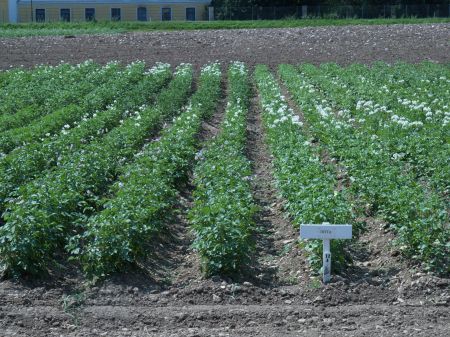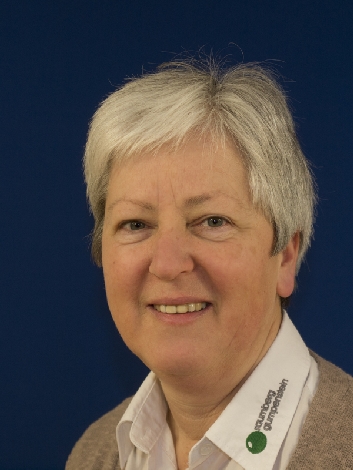The official variety value testing takes place in the east of Austria under dry and warm climatic conditions, but the conditions in the west of Austria are completely different. Potato varieties that do well in the official variety test can develop very differently in cooler and wetter climates, especially with regard to disease pressure.
The Lungau is an old, traditional potato growing area where the risk of virus transmission by aphids is relatively low and is therefore considered a recovery area. Seed production is also important in Lungau. Nowadays, the majority of potatoes produced in Lungau are grown organically. It is very important for these farmers to find the best varieties that can be produced easily and without problems and for which there is a corresponding demand from consumers. To test various potato varieties, the Agriculture Department of BAL Gumpenstein, in collaboration with the Tyrolean State Chamber of Agriculture and Forestry, the Tamsweg District Farmers' Chamber and the Lungau Seed Growing Association, is conducting a field trial in Lungau, in which eight varieties are tested for yield and quality (also the recording of the food quality) counts.
2. Influence of the location and fertilization of different potato varieties on yield and quality
Organic potato cultivation has a very special significance because direct marketing can be carried out particularly well with this type of culture and there is strong demand from consumers. It is therefore important for organic farmers who want to market potatoes directly to produce good-tasting potatoes that meet the quality criteria and that can be sold quickly and quickly. Different conditions apply to different locations, on the one hand for climatic reasons, and on the other hand due to the fact that in some regions consumers prefer certain varieties over others. It is therefore important to know about a larger range if you also take regional characteristics into account.
Varieties that have proven themselves well for organic cultivation in other European countries under completely different climatic conditions should definitely be included in this spectrum of varieties.
In this specific case, as part of this scientific activity, a specially selected range of potato varieties is to be tested for yield and quality at different locations under different climatic conditions. These include a location in Lambach, under favorable climatic conditions, but in an area with rather heavy rainfall. In contrast, experiments should also be carried out in the inner Alpine area of the Lungau, whereby the Lungau represents, on the one hand, a recovery area with regard to viral diseases, and on the other hand, a propagation area for potatoes, also in organic cultivation, which is an important source of income for farmers. Likewise, in the Ennstal and the Upper Murtal area, various varieties will be tested for their suitability for cultivation under organic conditions.
3. Possible ways to combat Rhizoctonia solani in organic potato cultivation
Rhizoctonia solani, the so-called root killer disease, has become a major problem, especially in organic potato cultivation. The constant supply of organic material introduced into the field through fertilization and crop rotation significantly increases the potential for infection. While seed dressing against Rhizoctonia can be successfully used in conventional potato cultivation, this option does not exist in organic farming. This shortcoming is particularly evident in seed propagation, but a severe infestation with rhizoctonia pox or other visible signs of this disease also means a significant reduction in quality for consumer goods.
Some so-called plant strengtheners have already been tested in various experiments in Germany, but did not lead to any really satisfactory results. That's why those farmers who are massively affected by this are waiting for other options to take targeted action against Rhizoctonia solani. These include plant-growing measures such as pre-germinating the seedlings, which is relatively difficult if the seedlings are only available shortly before planting. Correspondingly high soil temperatures during planting would be beneficial, as was the case in 2002 and partly also in 2003, but this factor cannot be planned for because it cannot be predicted. In addition, an important contribution to combating this potato disease can be made by supplying the fields with already rotted manure, as well as by maintaining the widest possible crop rotation in which not too much organic matter is incorporated into the soil. However, since there are not too many design options when it comes to crop rotation, especially in areas with rather unfavorable climatic conditions, it becomes extremely difficult to take countermeasures here. In areas with a very wide crop rotation, where potatoes are only grown every 7 to 8 years, the problem with Rhizoctonia solani is much smaller than where potatoes are grown in the same field every 3 to 4 years.
Since the Lungau in particular is a potato-healthy area, but massive problems with Rhizoctonia solani occur there, a trial on this topic should be carried out at this location.

Potato field
HBLFA Raumberg-Gumpenstein





